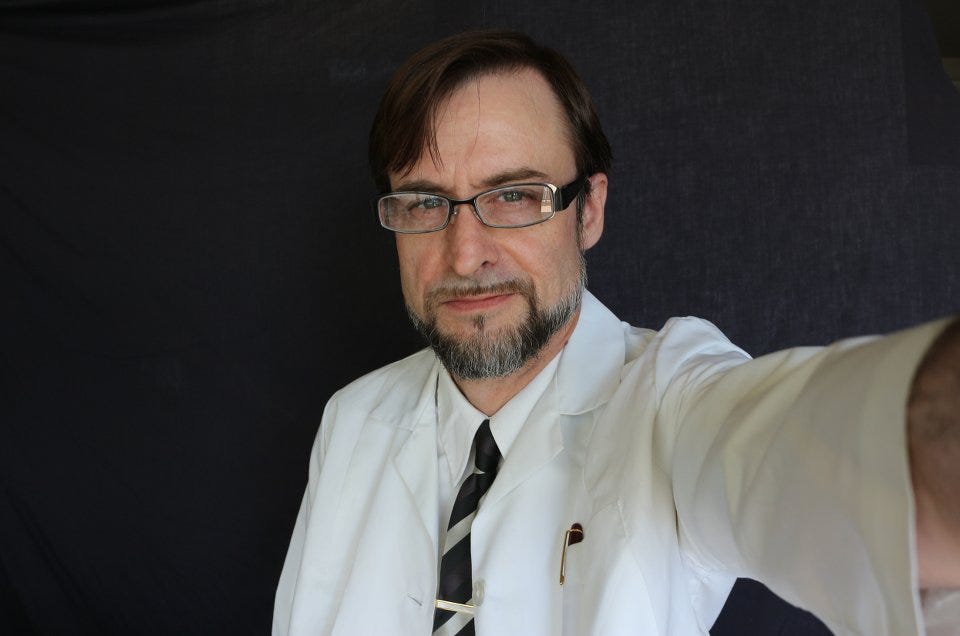Paladin Patience
Medicine gets a bad rap nowadays - thanks to a whole constellation of social changes, well outside it's scope. The strangest of these is probably the way we have gone from a society with too much respect for arbitrary authority, to one which often recognizes and respects no legitimate authority whatsoever.
Doctors do indeed have an unusual relationship with society - but we have an outright weird relationship with them and our own health, nowadays. I mentioned in my post about our ecological blindness (the standard model) that no cure is ever better than prevention - we know this is a simple and functional truth - and yet very few of us take it seriously in our daily lives, unless we are acutely frightened.
We sit too long, eat too much, fail to exercise, fail to learn and study, fail to engage actively with the world around us - then show up with preventable disease and deep depression in which we have made huge investments, day after day, for many years - demanding an instant and effortless cure. As if our health is something they've stolen from us, and are now holding for ransom - where the truth is that by ignoring it, we've actually thrown it away!
Many are paranoid about doctors in general, consider them arrogant, greedy, alienated from the working class - etc. But while there are anti-social individuals in every group, this is a fundamentally wrong-headed idea.
Sometimes I feel almost as if I'm listening to racists, talking ignorant hatred. But I happen to know several doctors, and I have to tell you - the reasons they got into it, were exactly the reasons that you'd want them to.
For anyone who truly is after money, status or power - there are infinitely easier paths to take. Doctors really do want to help - and to an increasing extent - they struggle to connect with us as allies in our own well-being, and win our full confidence.
Paladin Patience
It might sound ridiculous, but I gained some insight into their problems while working as a service technician, for high-end electronic gear. Some people enter with an attitude full of suspicion and hostility, 'knowing' that all repairmen are cheats.
How does one advise them best? The simple truth? You give them the full benefit of your professional expertise - same as with any other customer, but you are forced to spend much more effort than should be necessary, to find a way to make them understand and accept it (reality, that is).
Doctors are also operating from their own powerful internal code of integrity - but even with modern diagnostics, they are working with limited information about our lives - which is why working with them responsibly, and trusting them with our clearest individual insight, is so important to getting their best.
Suspicion and hostility hurts both sides, for no gain whatsoever. My old service mentor taught me, "No one will ever thank you, for something you didn't tell them you did." Which is how I started writing detailed factual reports (since I always was that conscientious in my work), and having my great care and attention taken more seriously by my clients.
But the reverse is just as true - you won't concentrate on a fault that hasn't been identified. You've got to say what's really wrong - and don't try to hide the fear or shame about what might possibly have contributed to it. Share the actual problem, then you can both work-it, together.
We have to positively allow our skilled allies permission to be the kind of help that we'd both feel best about. They can't just 'do' health to us - we're part of it.
Finally, for all my dear friends who are currently struggling, and must trust in doctors, nurses, laboratory technicians and administrators to help them through their crisis - believe-it - that is an incredible team of skill, experience and wisdom - and there is nothing they want more than your best outcome.
Nor, for the sort of thankless stress they face each day, are there more impressive examples of deep patience, caring and service, which can be easily called to mind.
¯\_(ツ)_/¯



